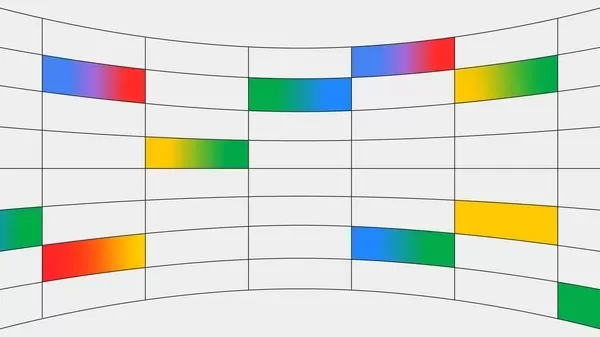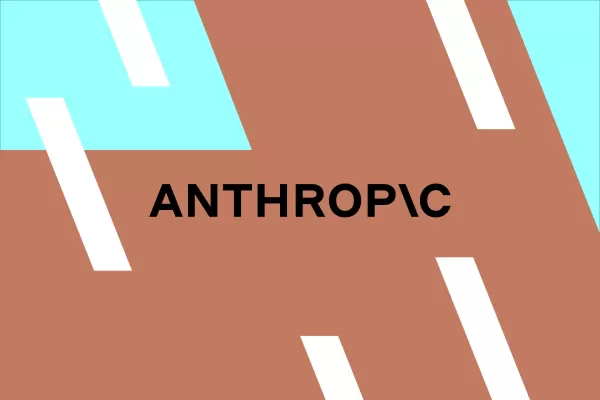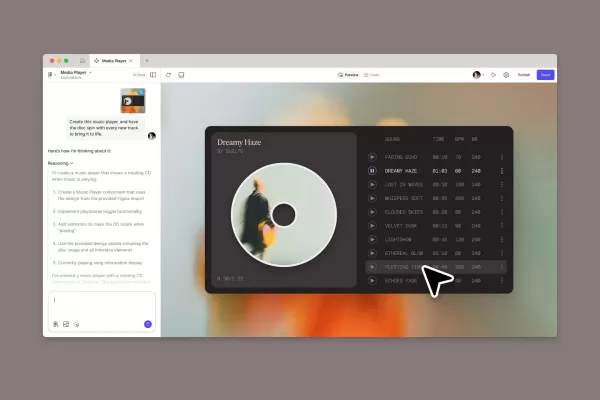Google's AI Gemini: Origin of the Name
Gemini first caught the public's eye at Google I/O in 2023, where we briefly revealed that our first natively multimodal model was in training and already showcasing remarkable capabilities. Fast forward a year, and Gemini models have found their way into Search, Ads, Workspace, Pixel, and beyond, marking some of the most significant innovations we unveiled at I/O just yesterday.
As Gemini continues to carve its niche, the question on everyone's mind is: where did the name "Gemini" come from? To unravel this mystery, we turned to the Google DeepMind team for the story behind the moniker.
The story behind the name
Initially, the project was dubbed "Titan," inspired by Saturn's largest moon. Jeff Dean, co-technical lead of Gemini, wasn't thrilled with the name, but it sparked an idea rooted in space.
"Gemini" is Latin for "twins," and in the sky, it's a constellation linked to the Greek mythological twins, Castor and Pollux, after whom its two brightest stars are named. The name holds a dual significance for our AI model.
Firstly, the Gemini zodiac sign is known for its dual nature, adaptability, and ability to connect with diverse groups—qualities that resonated with what was happening at Google at the time.
For almost a decade, DeepMind and Google Research's Brain team were at the forefront of AI breakthroughs, including large-scale deep learning, deep reinforcement learning, AlphaGo, and the Transformer architecture, which underpins most large language models (LLMs) today. In April 2023, these teams merged to form Google DeepMind, uniting their AI expertise, computing power, and resources.
Their first mission? To develop a series of powerful, multimodal AI models.
"The Gemini effort was born from our desire to bring our language modeling teams closer together," Jeff explains. "The 'twins' aspect of 'Gemini' felt perfect, symbolizing the collaboration between the legacy Brain and DeepMind teams on this ambitious project."
The name also draws inspiration from NASA's Project Gemini, an early moonshot program from 1965 to 1968.
Project Gemini served as a crucial link between the Mercury missions, which proved humans could survive in space, and the Apollo missions, which landed the first person on the moon. Named for its two-person spacecraft (powered by a Titan rocket, interestingly enough), Project Gemini tested equipment and techniques for prolonged space stays, achieving milestones like the first U.S. spacewalk and the first spacecraft docking in Earth's orbit.
The significance of Project Gemini to the Apollo program struck a chord with the team. Jeff suggested "Gemini" in a document they were working on, and it resonated. "The monumental effort of training LLMs reminded me of launching rockets," says Oriol Vinyals, co-technical lead of Gemini. "Naming our most ambitious project Gemini felt incredibly fitting."
One giant leap for AI models
AI holds the potential to address some of the world's most pressing challenges, much like the moon landing did for humanity. Our Gemini models represent a significant step forward, guiding us toward those stars safely and responsibly. "Now, the question is, will there be a follow-up to Gemini named Apollo?" Oriol muses with a grin.
Whatever the future holds, Google's Gemini era is just beginning. We started with Gemini 1.0 in December, available in three sizes—Ultra, Pro, and Nano. A few months later, we introduced 1.5 Pro, and yesterday, we unveiled the new 1.5 model, Flash. "We also discussed naming models after stars, given their varying sizes like our models," Oriol notes. "It's clear we're captivated by the universe in Gemini!"
Since its launch, Gemini has reached billions of people through Google products, and hundreds of thousands of developers and businesses have been building with the Gemini API.
"Gemini was born as a research program to create the world's most capable models," Oriol says. "By using it as the product name too, we hope our users will feel the continuous improvement, creativity, and innovation our research teams bring directly to them."
We're not astrologers, but Gemini's future certainly looks bright.
[ttpp] [yyxx]
[yyxx]


 Get more stories from Google in your inbox.
Get more stories from Google in your inbox.
Email addressYour information will be used in accordance with Google's privacy policy.
SubscribeDone. Just one step more.
Check your inbox to confirm your subscription.
You are already subscribed to our newsletter.
You can also subscribe with a different email address.
Related article
 "Dot AI Companion App Announces Closure, Discontinues Personalized Service"
Dot, an AI companion application designed to function as a personal friend and confidant, will cease operations, according to a Friday announcement from its developers. New Computer, the startup behind Dot, stated on its website that the service will
"Dot AI Companion App Announces Closure, Discontinues Personalized Service"
Dot, an AI companion application designed to function as a personal friend and confidant, will cease operations, according to a Friday announcement from its developers. New Computer, the startup behind Dot, stated on its website that the service will
 Anthropic Resolves Legal Case Over AI-Generated Book Piracy
Anthropic has reached a resolution in a significant copyright dispute with US authors, agreeing to a proposed class action settlement that avoids a potentially costly trial. The agreement, filed in court documents this Tuesday, stems from allegations
Anthropic Resolves Legal Case Over AI-Generated Book Piracy
Anthropic has reached a resolution in a significant copyright dispute with US authors, agreeing to a proposed class action settlement that avoids a potentially costly trial. The agreement, filed in court documents this Tuesday, stems from allegations
 Figma Releases AI-Powered App Builder Tool to All Users
Figma Make, the innovative prompt-to-app development platform unveiled earlier this year, has officially exited beta and rolled out to all users. This groundbreaking tool joins the ranks of AI-powered coding assistants like Google's Gemini Code Assis
Comments (60)
0/200
Figma Releases AI-Powered App Builder Tool to All Users
Figma Make, the innovative prompt-to-app development platform unveiled earlier this year, has officially exited beta and rolled out to all users. This groundbreaking tool joins the ranks of AI-powered coding assistants like Google's Gemini Code Assis
Comments (60)
0/200
![JamesLopez]() JamesLopez
JamesLopez
 August 21, 2025 at 9:01:17 PM EDT
August 21, 2025 at 9:01:17 PM EDT
Gemini's name sounds cool, but I wonder if it’s just a fancy label for tech that’s already everywhere. Multimodal AI is neat, but is Google really pushing boundaries or just catching up? 😕


 0
0
![BillyYoung]() BillyYoung
BillyYoung
 August 18, 2025 at 7:00:59 PM EDT
August 18, 2025 at 7:00:59 PM EDT
Gemini's name sounds cool, but I wonder if it’s just a fancy label for recycled tech. Multimodal AI is neat, though—imagine it powering my Pixel to actually understand my messy handwriting! 😄


 0
0
![KeithMoore]() KeithMoore
KeithMoore
 August 18, 2025 at 3:00:59 AM EDT
August 18, 2025 at 3:00:59 AM EDT
Gemini's name is intriguing! It feels like Google’s aiming for a cosmic leap in AI, blending logic and creativity. Loving how it’s already powering Search and Pixel—super curious to see where it goes next! 🌟


 0
0
![AlbertSanchez]() AlbertSanchez
AlbertSanchez
 August 2, 2025 at 11:07:14 AM EDT
August 2, 2025 at 11:07:14 AM EDT
Gemini's name sounds cool, like a cosmic duo! It's wild how it’s already powering so much of Google’s stuff. Wonder how it stacks up against other AI models out there? 🤔


 0
0
![MatthewTaylor]() MatthewTaylor
MatthewTaylor
 July 23, 2025 at 4:50:48 AM EDT
July 23, 2025 at 4:50:48 AM EDT
Gemini's name sounds cool, but I'm curious if it’s just a catchy label or has deeper meaning tied to AI duality. Anyone know the story behind it? 😄


 0
0
![WyattHill]() WyattHill
WyattHill
 April 23, 2025 at 3:01:03 PM EDT
April 23, 2025 at 3:01:03 PM EDT
A integração do Gemini no ecossistema do Google é impressionante! Desde a Pesquisa até o Pixel, está em todos os lugares. É como ter um assistente superinteligente em cada canto da minha vida digital. A única coisa que eu gostaria que melhorassem é a velocidade de resposta em alguns aplicativos. Ainda assim, uma mudança de jogo! 🚀


 0
0
Gemini first caught the public's eye at Google I/O in 2023, where we briefly revealed that our first natively multimodal model was in training and already showcasing remarkable capabilities. Fast forward a year, and Gemini models have found their way into Search, Ads, Workspace, Pixel, and beyond, marking some of the most significant innovations we unveiled at I/O just yesterday.
As Gemini continues to carve its niche, the question on everyone's mind is: where did the name "Gemini" come from? To unravel this mystery, we turned to the Google DeepMind team for the story behind the moniker.
The story behind the name
Initially, the project was dubbed "Titan," inspired by Saturn's largest moon. Jeff Dean, co-technical lead of Gemini, wasn't thrilled with the name, but it sparked an idea rooted in space.
"Gemini" is Latin for "twins," and in the sky, it's a constellation linked to the Greek mythological twins, Castor and Pollux, after whom its two brightest stars are named. The name holds a dual significance for our AI model.
Firstly, the Gemini zodiac sign is known for its dual nature, adaptability, and ability to connect with diverse groups—qualities that resonated with what was happening at Google at the time.
For almost a decade, DeepMind and Google Research's Brain team were at the forefront of AI breakthroughs, including large-scale deep learning, deep reinforcement learning, AlphaGo, and the Transformer architecture, which underpins most large language models (LLMs) today. In April 2023, these teams merged to form Google DeepMind, uniting their AI expertise, computing power, and resources.
Their first mission? To develop a series of powerful, multimodal AI models.
"The Gemini effort was born from our desire to bring our language modeling teams closer together," Jeff explains. "The 'twins' aspect of 'Gemini' felt perfect, symbolizing the collaboration between the legacy Brain and DeepMind teams on this ambitious project."
The name also draws inspiration from NASA's Project Gemini, an early moonshot program from 1965 to 1968.
Project Gemini served as a crucial link between the Mercury missions, which proved humans could survive in space, and the Apollo missions, which landed the first person on the moon. Named for its two-person spacecraft (powered by a Titan rocket, interestingly enough), Project Gemini tested equipment and techniques for prolonged space stays, achieving milestones like the first U.S. spacewalk and the first spacecraft docking in Earth's orbit.
The significance of Project Gemini to the Apollo program struck a chord with the team. Jeff suggested "Gemini" in a document they were working on, and it resonated. "The monumental effort of training LLMs reminded me of launching rockets," says Oriol Vinyals, co-technical lead of Gemini. "Naming our most ambitious project Gemini felt incredibly fitting."
One giant leap for AI models
AI holds the potential to address some of the world's most pressing challenges, much like the moon landing did for humanity. Our Gemini models represent a significant step forward, guiding us toward those stars safely and responsibly. "Now, the question is, will there be a follow-up to Gemini named Apollo?" Oriol muses with a grin.
Whatever the future holds, Google's Gemini era is just beginning. We started with Gemini 1.0 in December, available in three sizes—Ultra, Pro, and Nano. A few months later, we introduced 1.5 Pro, and yesterday, we unveiled the new 1.5 model, Flash. "We also discussed naming models after stars, given their varying sizes like our models," Oriol notes. "It's clear we're captivated by the universe in Gemini!"
Since its launch, Gemini has reached billions of people through Google products, and hundreds of thousands of developers and businesses have been building with the Gemini API.
"Gemini was born as a research program to create the world's most capable models," Oriol says. "By using it as the product name too, we hope our users will feel the continuous improvement, creativity, and innovation our research teams bring directly to them."
We're not astrologers, but Gemini's future certainly looks bright.
[ttpp] [yyxx]
[yyxx]
Email addressYour information will be used in accordance with Google's privacy policy.
SubscribeDone. Just one step more.
Check your inbox to confirm your subscription.
You are already subscribed to our newsletter.
You can also subscribe with a different email address.
 Anthropic Resolves Legal Case Over AI-Generated Book Piracy
Anthropic has reached a resolution in a significant copyright dispute with US authors, agreeing to a proposed class action settlement that avoids a potentially costly trial. The agreement, filed in court documents this Tuesday, stems from allegations
Anthropic Resolves Legal Case Over AI-Generated Book Piracy
Anthropic has reached a resolution in a significant copyright dispute with US authors, agreeing to a proposed class action settlement that avoids a potentially costly trial. The agreement, filed in court documents this Tuesday, stems from allegations
 Figma Releases AI-Powered App Builder Tool to All Users
Figma Make, the innovative prompt-to-app development platform unveiled earlier this year, has officially exited beta and rolled out to all users. This groundbreaking tool joins the ranks of AI-powered coding assistants like Google's Gemini Code Assis
Figma Releases AI-Powered App Builder Tool to All Users
Figma Make, the innovative prompt-to-app development platform unveiled earlier this year, has officially exited beta and rolled out to all users. This groundbreaking tool joins the ranks of AI-powered coding assistants like Google's Gemini Code Assis
 August 21, 2025 at 9:01:17 PM EDT
August 21, 2025 at 9:01:17 PM EDT
Gemini's name sounds cool, but I wonder if it’s just a fancy label for tech that’s already everywhere. Multimodal AI is neat, but is Google really pushing boundaries or just catching up? 😕


 0
0
 August 18, 2025 at 7:00:59 PM EDT
August 18, 2025 at 7:00:59 PM EDT
Gemini's name sounds cool, but I wonder if it’s just a fancy label for recycled tech. Multimodal AI is neat, though—imagine it powering my Pixel to actually understand my messy handwriting! 😄


 0
0
 August 18, 2025 at 3:00:59 AM EDT
August 18, 2025 at 3:00:59 AM EDT
Gemini's name is intriguing! It feels like Google’s aiming for a cosmic leap in AI, blending logic and creativity. Loving how it’s already powering Search and Pixel—super curious to see where it goes next! 🌟


 0
0
 August 2, 2025 at 11:07:14 AM EDT
August 2, 2025 at 11:07:14 AM EDT
Gemini's name sounds cool, like a cosmic duo! It's wild how it’s already powering so much of Google’s stuff. Wonder how it stacks up against other AI models out there? 🤔


 0
0
 July 23, 2025 at 4:50:48 AM EDT
July 23, 2025 at 4:50:48 AM EDT
Gemini's name sounds cool, but I'm curious if it’s just a catchy label or has deeper meaning tied to AI duality. Anyone know the story behind it? 😄


 0
0
 April 23, 2025 at 3:01:03 PM EDT
April 23, 2025 at 3:01:03 PM EDT
A integração do Gemini no ecossistema do Google é impressionante! Desde a Pesquisa até o Pixel, está em todos os lugares. É como ter um assistente superinteligente em cada canto da minha vida digital. A única coisa que eu gostaria que melhorassem é a velocidade de resposta em alguns aplicativos. Ainda assim, uma mudança de jogo! 🚀


 0
0





























